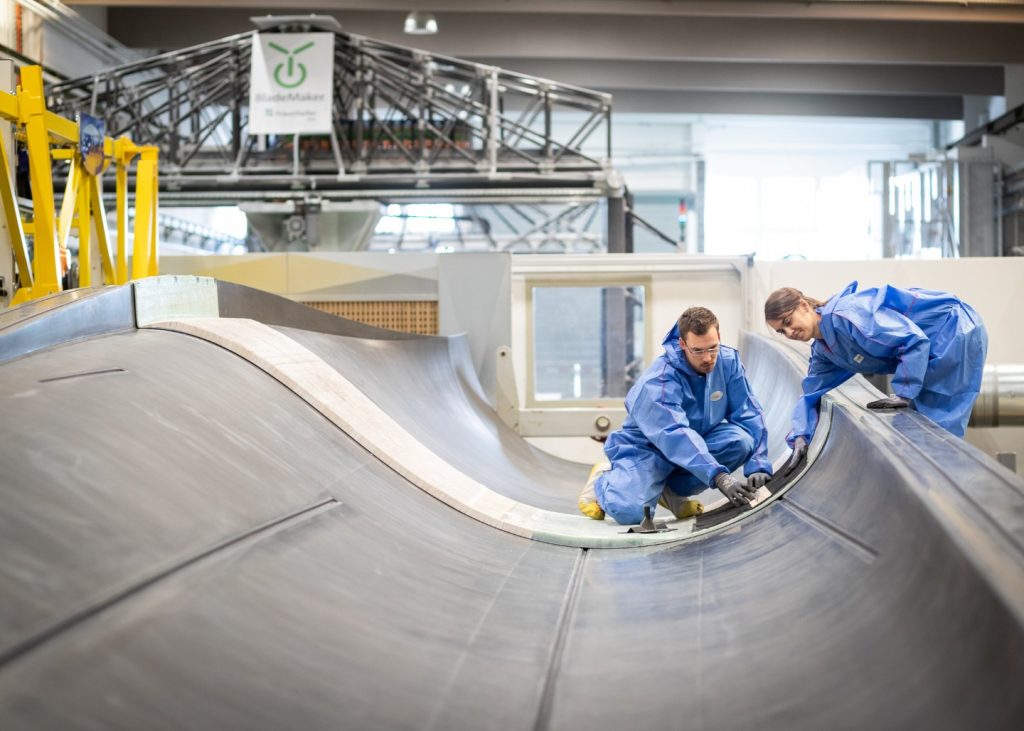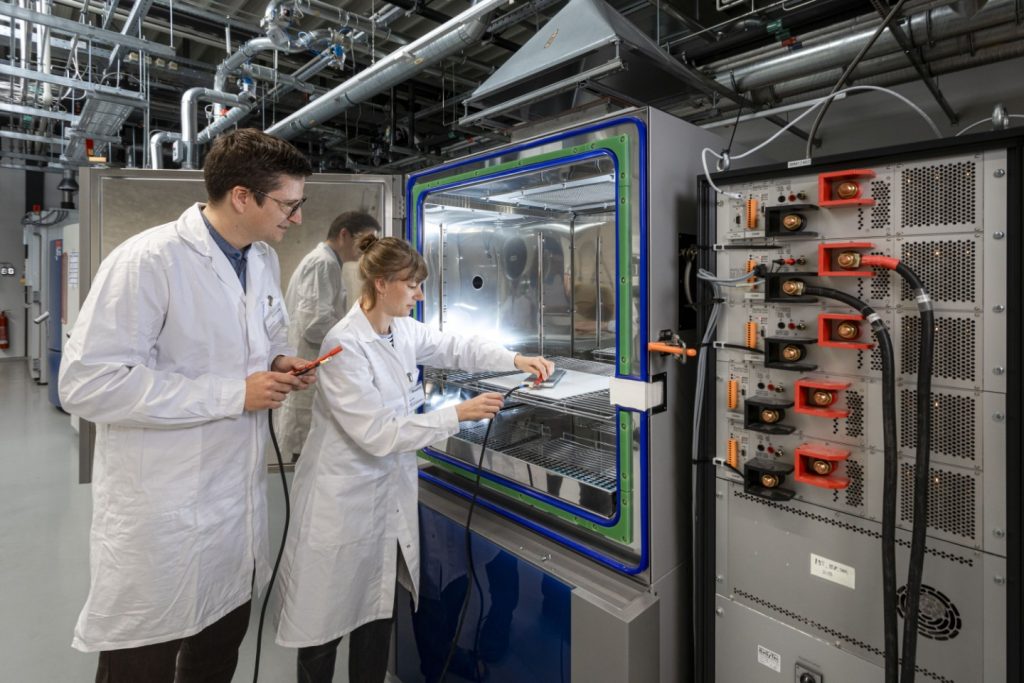The year 2024 is characterized by a substantial reduction in federal funding for project research. Energy research is particularly affected by this. A 30% reduction in available funding for new projects is looming, compared to the previous year. Against this backdrop, the Fraunhofer-Group »Energy Technologies and Climate Protection« is warning of a massive decline in German industry’s ability to innovate in technologies for the energy transition. Nine institutes of the Fraunhofer-Gesellschaft are organized in the group, which play a key role in driving forward application-oriented energy research.
Public research funding is essential for the rapid and successful implementation of the energy transition. It is the foundation for the proven and successful cooperation between companies and science institutions in the development and market launch of new technologies,« explains Prof Dr Hans-Martin Henning, Chairman of the Fraunhofer-Group for »Energy Technologies and Climate Protection« and Director of the Fraunhofer Institute for Solar Energy Systems ISE. »The cuts undermine critical innovations that Germany urgently needs in order to achieve its climate targets and to maintain and expand its leadership position in the field of important future technologies. At the same time, the risk of further dependence on foreign countries in the field of these technologies is increasing

Subject of the reductions
In the budget for 2024, the Federal Ministry for Economic Affairs and Climate Protection (BMWK) reduced the commitment appropriations for the »Energy research« title by 12%. In addition, the ruling of the Federal Constitutional Court in November 2023, as a result of which €60 billion less is available in the Federal Government’s Climate and Transformation Fund (KTF), led to a substantial reduction in funding for research into technologies for the energy transition, including in programmes of the Federal Ministry of Education and Research (BMBF) for project funding in the areas of batteries and hydrogen. In total, the ministries expect a reduction of up to 30% in the funds available for project funding. Further declines in energy research funding cannot be ruled out for the 2025 budget. The slump in funding is the most drastic in the history of the federal government’s energy research programmes.
The funding cuts are already being felt today. Several pending funding applications including budgets for the current year and the following years have already not been approved. In addition, the acceptance of applications for research projects in the BMWK’s KTF funding programmes has been paused since December 2023. Overall, significantly less project funding will be available for 2024 and even more so for the following years. »The current cuts are far-reaching and affect the entire spectrum of renewable energies and the key technologies of the current and future energy system: from wind energy, photovoltaics and geothermal energy to hydrogen and heat through to overarching system solutions,« adds Prof Dr Andreas Reuter, Deputy Chairman of the group and Director of the Fraunhofer Institute for Wind Energy Systems IWES. »On the part of the research institutes, the cutbacks are leading to job losses, meaning that fewer people can be qualified to work in these promising industries.

Innovation bottleneck and shortage of skilled labour
The federal programmes in the field of energy research have produced many important innovations in recent years and decades. Funded individual measures, but above all the funding of joint projects between research institutions and companies in industry, have established themselves as powerful instruments for the rapid development and implementation of new technologies. The spectrum of subsidised projects ranges from applied basic research to demonstration and support for market launch.
However, the training of skilled labour also takes place extensively in the context of publicly funded research. For example, a study by the Fraunhofer Institute for Systems and Innovation Research ISI shows how the cuts in funding will have a drastic impact on the competitiveness of the German battery industry, as they will further exacerbate the existing shortage of skilled labour. According to the study, around 15,000 skilled workers have been trained for this in Germany alone in recent years – mainly in publicly funded research projects in which bachelor’s, master’s and doctoral theses are produced. The qualification of these specialists is now being jeopardised by the cuts, even though they are urgently needed. This is because electrical energy storage systems will be of paramount importance for the mobility of the future, but also for the stability and reliability of the electricity grids of the future, which will increasingly be fed by fluctuating renewable energies.
It is precisely this transfer of research results, licences, and qualified personnel to industry that the institutes of the Fraunhofer-Gesellschaft are committed to. Their task is to secure Germany’s competitiveness and open new opportunities through applied re-search and the development of future technologies. While the basic funding of the institutes is not addressed by the budget cuts, the savings in the area of project funding particularly affect their research activities carried out jointly with industrial companies.
The Fraunhofer-Gesellschaft, based in Germany, is one of the world’s leading applied research organisations. The Fraunhofer Group for »Energy Technologies and Climate Protection« is the platform for the strategic orientation of the Fraunhofer-Gesellschaft’s energy research and pools the expertise of its nine member institutes. These are the Fraunhofer Research Institution for Energy Infrastructures and Geothermal Systems IEG and the Fraunhofer Institutes for Energy Economics and Energy System Technology IEE, Manufacturing Engineering and Advanced Materials IFAM (guest), Optronics, System Technologies and Image Exploitation IOSB (guest), Manufacturing Engineering and Automation IPA (guest), Solar Energy Systems ISE, Systems and Innovation Research ISI (guest), Environmental, Safety and Energy Technology UMSICHT (guest) and Wind Energy Systems IWES.


























